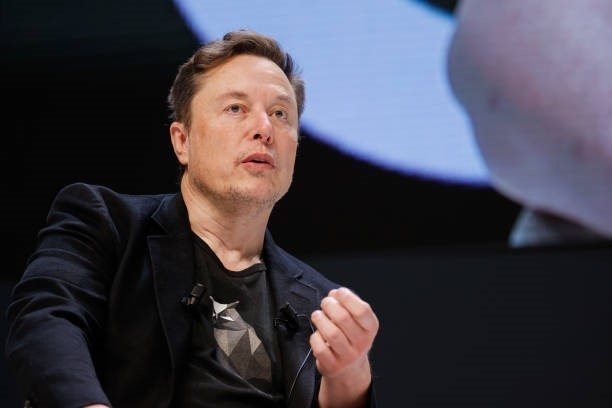
Elon Musk, the CEO of X (formerly known as Twitter), has once again found himself at the center of a social media firestorm. This time, he’s being criticized for his decision to remove blue verification check marks from certain accounts and demonetize others that he reportedly doesn’t align with ideologically.
These actions have sparked outrage among content creators, free speech advocates, and users who argue that Musk’s personal biases are influencing the platform’s policies.
The controversy surrounding Musk's management of X is not new. Since his $44 billion acquisition of the platform, he has implemented sweeping changes that have altered its very foundation. One of the most polarizing moves has been his overhaul of the verification system.
Historically, the blue check mark was a badge of authenticity, granted to public figures, journalists, and organizations to verify their identity. Musk, however, deemed the previous system “corrupt” and replaced it with a subscription-based model called X Premium.

For $8 a month, any user could obtain a blue check mark, a move Musk touted as “democratizing verification.”
This shift faced significant criticism from users who argued it devalued the meaning of verification and created confusion. However, the recent removal of blue check marks from specific accounts has added fuel to the fire.
Reports suggest that several prominent accounts, including those of journalists, political commentators, and activists, have been stripped of their check marks without a clear violation of platform rules.
Musk’s critics argue that these actions appear to target individuals or organizations whose views or criticisms don’t align with his own.

Adding to the uproar is Musk’s alleged practice of demonetizing accounts. Under the revamped X platform, content creators have the opportunity to monetize their posts through subscriptions and ad revenue sharing.
However, several creators claim they’ve been abruptly demonetized without explanation. In many cases, these accounts had previously voiced criticism of Musk or his leadership of X.
While Musk has not publicly acknowledged these allegations, his history of using his platform to engage in personal disputes has left many users skeptical of his neutrality.
The backlash against Musk’s policies has been swift and widespread. Free speech advocates argue that these actions contradict Musk’s earlier claims of championing free expression on X. They contend that removing check marks and demonetizing creators based on personal preferences amounts to silencing dissent and fostering an environment of fear.

Critics also highlight the potential chilling effect on discourse, as users may self-censor to avoid retaliation from the platform’s leadership.
For content creators, the impact of these changes goes beyond principles of free speech. Many creators rely on X as a primary source of income, leveraging their reach and influence to earn through subscriptions and ad revenue.
The sudden demonetization of accounts not only affects their livelihood but also undermines trust in the platform as a reliable space for creators. As a result, some creators have started exploring alternative platforms, fearing further unpredictability on X.
Musk’s defenders, however, argue that the changes are necessary to reform what they see as a deeply flawed system. They claim that Musk’s policies aim to curb misinformation and ensure a more level playing field.

According to Musk’s supporters, his actions target accounts spreading false information or engaging in divisive rhetoric, regardless of their ideological leanings. They also point to the financial sustainability of X Premium, which generates revenue for the platform and reduces its reliance on advertising.
Despite these justifications, the perception of Musk as an impulsive leader who uses his power to settle personal scores continues to gain traction.
His controversial management style has already led to an exodus of advertisers, a critical revenue source for X. Industry experts warn that alienating creators and users could further erode the platform’s stability and relevance.

The controversy has also reignited discussions about the role of social media platforms in shaping public discourse. Critics argue that platforms like X have a responsibility to ensure fairness and transparency in their policies.
They call for independent oversight and clear guidelines to prevent abuses of power by platform executives. Some have even suggested that Musk’s actions could invite regulatory scrutiny, as governments around the world increasingly examine the influence of social media platforms on democratic processes.
As the backlash intensifies, Musk remains characteristically unapologetic. In a recent post on X, he dismissed his critics as “entitled complainers” and reiterated his commitment to reshaping the platform.

However, the growing discontent among users, creators, and advertisers suggests that Musk’s vision for X is far from universally accepted.
In the end, the controversy over blue check marks and demonetization highlights the challenges of managing a platform that serves as both a business and a public forum.
For Musk, the stakes are high: the success of X depends on his ability to balance his ambitions with the expectations of its diverse user base. Whether he can achieve this remains an open question, but one thing is certain—his actions will continue to spark debate and division in the months to come.



